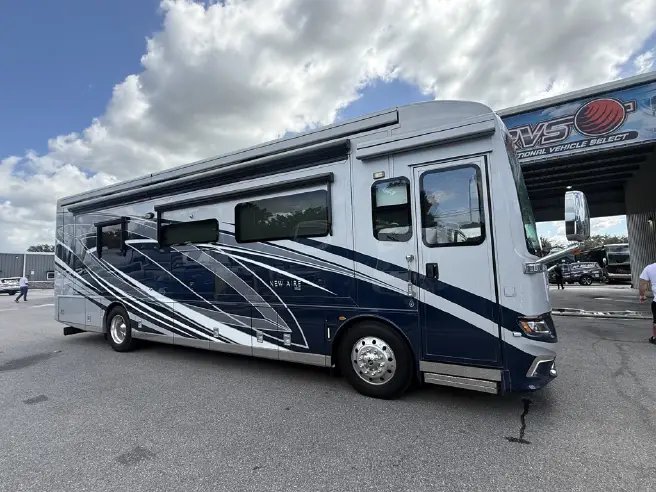One of the most common questions people have when purchasing an RV is whether they should invest in a gas or diesel motorhome. There are pros and cons to each, and the type of rig that is right for you will depend on a variety of factors, including how much space you need, how often you’ll be using the rig, and how long your trips will be.
Let’s start with the basics. Diesel and gas engines both use fuel to create mechanical energy, but the way they make this conversion is different. With a gasoline engine, the fuel mixes with air, the air is compressed (heated), and then ignites via a spark plug. In a diesel engine, the air is compressed first and then the fuel is injected. But what does this mean for you? Read on for some of the main differences between gas and diesel engines.
1. Maintenance – RVs require ongoing maintenance, regardless of what kind of engine you purchase. However, diesel-powered motorhomes tend to need more regular maintenance. Fuel filters (there are usually two or more) need to be changed with every oil change on a diesel and the engine coolant needs to be changed about twice as frequently as a gas-powered rig. Parts and labor on diesel RVs are generally more expensive as well. Engine filters, however, can usually be changed less frequently on a diesel RV, about every 15,000 miles to a gas coach’s 5,000-7000.
2. Purchase price – Diesel RVs will cost more at the outset. With other components being equal, a diesel RV may cost as much as $50,000-$60,000 more than a gas RV. However, diesel RVs tend to retain their value better than gas RVs and bring in higher resale prices. Fuel efficiency and maintenance costs should also be factored into the cost difference between these two types of rigs.
3. Fuel efficiency – Diesel-powered coaches are more fuel efficient than gas-powered coaches. However, diesel tends to be more expensive than gas and is not guaranteed to be available everywhere that gas is available.
4. Power – While gas engines can produce more horsepower than diesel engines, the torque is higher in diesel rigs. So a rig with higher horsepower will be able to go faster, but a rig with higher torque carries more force. A gas-powered rig will do well on long, flat stretches of road but if you’ll be on hills and mountains a diesel rig will prove more powerful and adept.
5. Chassis – A diesel motorhome will have a bigger chassis than a gas-powered coach. While this offers more cargo space in the rig, you will need to take the size of the motorhome into consideration when choosing campgrounds and planning back-road trips or city exploring.
Overall, if you can handle the higher up-front cost, a diesel motorhome will likely be better suited for people who will be using their RV more than half of the year and taking long trips. With better fuel economy, more power, and more room, a diesel coach tends to offer a more comfortable ride. For the occasional excursion that won’t be taking you through unchartered terrain, a gas-powered motorhome is the less expensive way to travel.
Any questions? Be sure to contact us!




